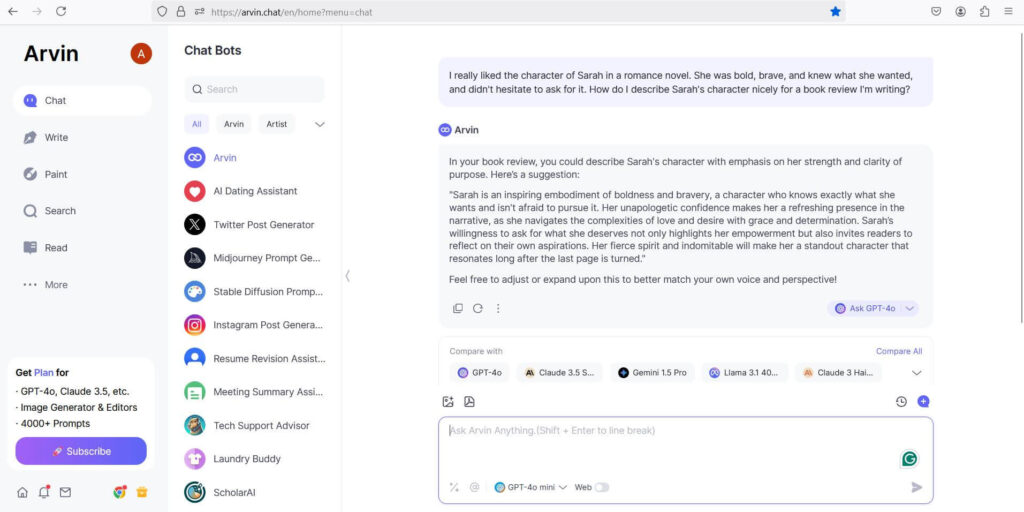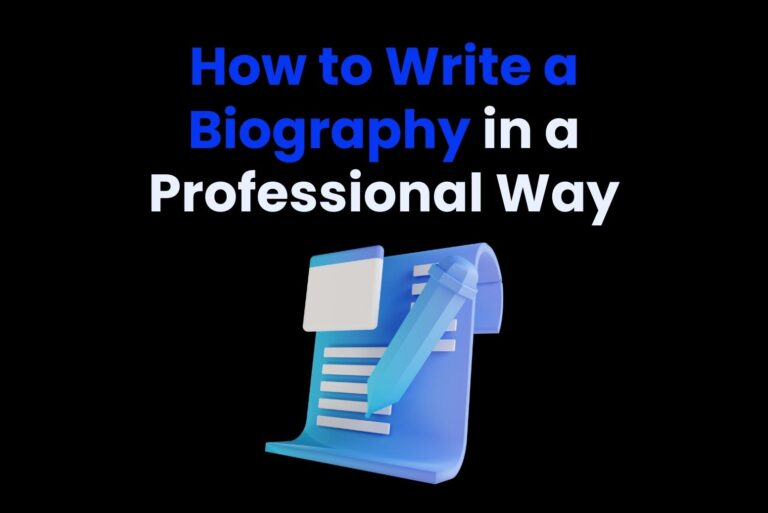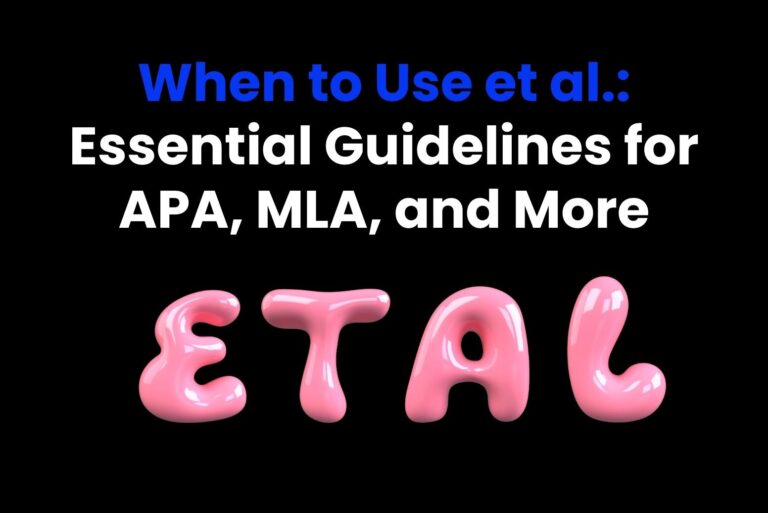How To Write A Book Review And Make People Want To Read It
Did you just finish reading a new book? Did it make you laugh, or did it make you cry? Maybe it just made you sit in silence and stare at the wall, but either way, you’ve got thoughts, and you’re trying to figure out how to write a book review that actually captures your feelings.
Here’s the thing: a book review isn’t just about “It was a good read” or “I didn’t like it.” It is about exploring why you felt the way you did, and helping others decide whether the book is right for them. This guide will walk you through everything you need to know to write a killer book review. Let’s make your book review stand out!

What’s The Point Of Writing A Book Review?
Let’s be real: most of us don’t write a book review to earn money out of it or to get famous (even though they are good reasons, nevertheless). However, there are plenty of reasons to write a book review of any book, and here are a few of them:
- Share Your Thoughts: Whether you want to rave about your new favorite or you want to vent about a book that let you down, a book review is your chance to be seen and heard (well, read, actually, but you get the point).
- Help Others: Your review can help others know whether a book is worth their time and money or not, so be their compass and guide them right.
- Join The Conversation: Books inspire debates, emotions, and connections. Writing a review lets you be a part of that conversation. Whether it’s on Goodreads, your blog, or social media, you become part of a global conversation about books when you know how to write a book review.
Preparing How To Write A Book Review
You can write a book review of any book if you prepare for it. So, before you start writing, here are a few things to consider:
● Pick The Right Book
Good or bad, you need to pick one that you’re genuinely excited for. This is because if you’re interested in the book, it will evoke emotions in you, and it will be much easier to write a review of it. Similarly, if you’re indifferent to the book, your review will simply fall flat, too.
Pro tip: Consider reviewing less popular books because popular books have hundreds of reviews on them already, and if you uncover a hidden gem or a debut author, you can offer unique value to your readers.
● Know Who You Are Writing For
Before you put pen to paper (or fingers to keyboard), think about who you’re writing for. Are you talking to fellow fans of the genre, casual readers, or maybe students or academics?
For example:
- Casual readers just want to know if the book is engaging, well-paced, or entertaining.
- Fellow book lovers appreciate deeper dives into themes, character arcs, or comparisons to other similar books.
- Academic or niche audiences might expect a more detailed analysis of the writing style, symbolism, or historical context.
Knowing who your target audience is will help you write with intent, and the resulting content will be much more relatable for your audience as well.

● Do A Little Homework
Before you start writing a book review, you need to understand the book’s context. Here’s what details you need to look up:
- The Author: First things first, look up the author of the book to see their background and other works they have done. For example, if you know that an author has written books about romance, it can give you insights into their narrative choices.
- Genre Expectations: Next, you need to understand the norms of the book’s genre. For instance, mystery books aim to keep readers guessing, while a romance novel’s goal is to explore relationships and emotions.
- Publication History: Lastly, you want to know whether this book was a bestseller or a quiet release without much buzz.
● Take Notes While You Read
We know you think you remember everything about a certain book by heart, but that’s not actually true. You need to start making notes for your book review while you’re reading the book so that your thoughts can start forming. Always keep a notebook or your phone handy to jot down:
- Quotes that stand out
- Scenes or moments that moved you
- Questions or thoughts you had while reading
- Themes or patterns you noticed
These notes will save you from forgetting key details of your book, and now, nothing can stop you from writing a splendid book review.
The Anatomy Of A Book Review Format
Now for the fun part which is actually how to write a book review that makes readers turn pages.
Step 1: Read The Book (Really)
Now, you might think that isn’t this a given? However, this is the most important point of all the things we’ll be talking about. Some people really like shortcuts, but skimming through the book, listening to it from a friend, or reading the summary of the book won’t give you enough knowledge to write a book review. Read the book thoroughly while keeping in mind that you’ll be writing a review of it soon.
Pro Tio: If you’re writing a review for a book you read a while ago, it’s better to read the book again before you write the review. This will help you freshen up your memory about the key points of the book.

Step 2: Start Strong With An Introduction
Did you know that the human attention span has dropped to less than 8 seconds? Yeah, thanks, Instagram and Facebook. But do you know what this actually means? This means you have just a few seconds to hook your readers and compel them to read the entire review.
Start by mentioning the title, author, and genre, then give readers a dive into your overall expression of the book. This gives readers a clear idea of what the book is about and how you feel about it—all without spoilers. Make it fun, and don’t make it sound like a boring biology topic.
Step 3: Summarize Without Spoilers
Do you know what the reader’s community hates the most? Spoilers! They avoid spoilers like a plague, and so should you. Summarizing doesn’t mean that you have to reveal every single plot of the book. Keep it short and sweet with:
- What’s the main premise?
- Who are the key players?
- What’s the tone—funny, dark, adventurous?
Step 4: Get Into The Details
This is the meat of your review – your analysis of the book. This is where you break down what worked (or didn’t). Here’s how you should go on about this portion of your book review:
- Plot: Was it fast-paced, or was it dragged? Did it surprise you, or you could easily predict what was going to happen next?
- Characters: Were the characters relatable? Did they feel like real people to you or just some work of fiction?
- Themes: What ideas did the book explore? Did they resonate with you? Did the author talk about something unique, like a taboo topic, or was it just everyday romance?
- Writing Style: Was the prose beautiful, clunky, or somewhere in between?
Don’t just say, “The characters were great.” Explain why you think they were great. Take this for an example: what explains the character more: “Lucy was a nice character” or “Lucy was a standout character—flawed, funny, and so heartbreakingly human. Her journey felt real in a way that made me root for her, even when she made terrible decisions.” See the difference here?
If you’re still stuck, feel free to get help from an AI assistant like we did here with Arvin AI. Ask Arvin to help you find the target audience of your book, help you decide what tone to write in, or help you put words to your thoughts.

Step 5: Make It Fun To Read
When writing a book review, you need to be honest but not brutally honest – stay kind. Just because you didn’t like the book, you don’t have to be rude because someone put their heart and soul into writing that book. Criticism is fine—just don’t be mean about it. Instead of saying, “This book was trash,” try something like, “The pacing didn’t work for me, but I can see how fans of slow-burn stories might enjoy it.” Constructive criticism is the way to go!
● Use Examples
Backing up your opinions with examples makes your review more credible and interesting. If you loved a particular scene or hated a line of dialogue, include it. Reminder: do not give it all away; just mention the highlights!
Step 6: Wrap It Up Nicely
Now, it is time for you to sum up your thoughts about the book. Give your suggestions about what you loved about the book and what could have been done better. Remember, you’re writing for an audience, so talk about who should read this book or who would like this book.
Bonus Tips On How To Write A Book Review
If you’re going to write a review that is not just read but shared and talked about, here are a few things you need to do:
● Write In Your Own Voice
Think about it: so many other people must have written reviews of the same book; what will make yours unique? The answer may sound cliche to you, but it is actually true. YOU make your review unique, and so your review should sound like YOU! Whether you’re witty or you love to crack a joke here and there, let your personality shine through your review.
● Keep A Balance Between Praise And Criticism
Nobody is going to trust a review that is all sunshine and rainbows. So, always try to keep a balance between praise and criticism. Be honest and be realistic about your opinions.

What Should A Book Review Not Be Like
Knowing how not to write a book review is equally important as knowing how to write a book review. Here’s how to not write a book review:
- Don’t rant or write an overly emotional book review
- Never do personal attacks on the author (critique the work, not the writer)
- Don’t write a vague review and support your opinion with examples
- Don’t make the review about you and keep it related to the book only
FAQS About How To Write A Book Review
Here are a few of the most frequently asked questions about how to write a book review:
1. How many pages should a book review be?
Typically, a book review is anywhere between 4 and 5 pages long, but the length is, of course, variable. Most book reviews are around 1500 words long, and around 1000 words long book reviews are considered to be of ideal length. You can write reviews longer than this, but remember that you are writing a review and not an actual book.
2. Does a book review need quotes?
It is not necessary for your book review to have quotes, but if you add some, they can help enhance the credibility of your review. It can help you highlight key themes, ideas, or memorable lines of the book.
3. How do you become a famous book reviewer?
If you want to achieve fame as a book reviewer, here’s what you need to do step-by-step:
- Develop your unique style and tone of writing
- Pick a niche
- Build your platform, whether Instagram, blog, website, or podcast
- Write consistently and post regularly
- Engage with your audience
- Utilize SEO and bookstagram hashtags to grow
- Be honest and authentic
The Bottom Line
Now that you know how to write a book review, it’s time to start reviewing. So grab your next book, a pen and paper (or a laptop if that’s what you prefer), and start sharing your thoughts with the world. Your book community is dying to hear what you think about that one book, so start now!
If you don’t know how to begin or are going through writer’s block, don’t shy away from taking help from a writing assistant like Arvin AI. Ask Arvin to sum up your thoughts or give you reviews on how to improve your writing; use it however you want! Happy reading and writing!






